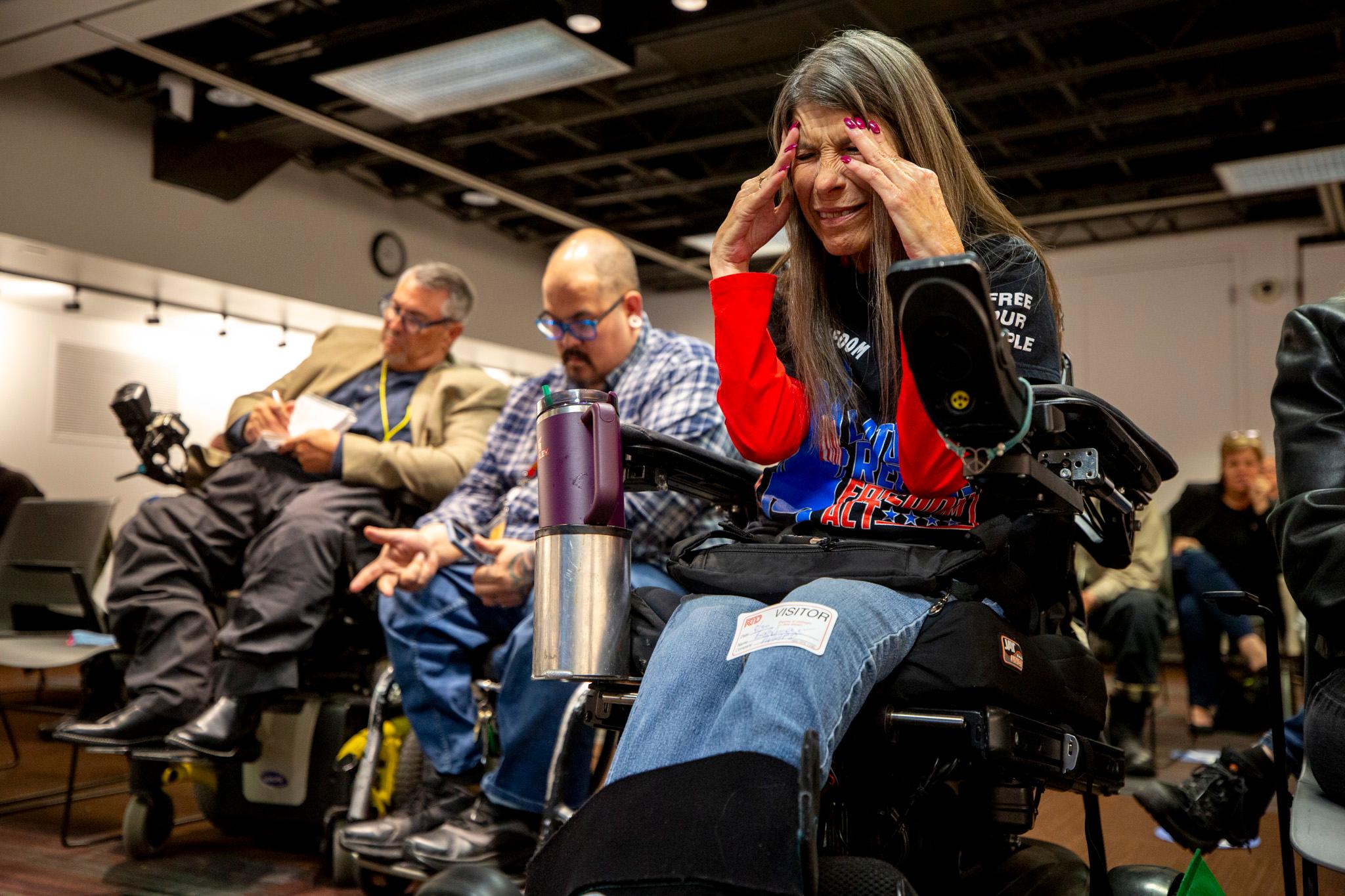The Regional Transportation District’s Board of Directors voted 10-5 on Tuesday to change the agency’s on-demand paratransit service, Access-on-Demand. The changes will add to many users' costs while making the service cheaper for RTD to run — and more financially sustainable, according to supporters of the change.
Access-on-Demand offers subsidized, on-demand rides for qualified riders via certain ride-share and taxi companies. That flexibility was a driving factor in its popularity — especially because users didn’t have to pay a base fare.
The board faced intense pushback as it passed the changes.
“I'm worried and I fear if we don't make modifications to this program, what the future of the program will be,” said Julien Bouquet, a director on the board who supported the change. “ But I think this is a fair compromise.”
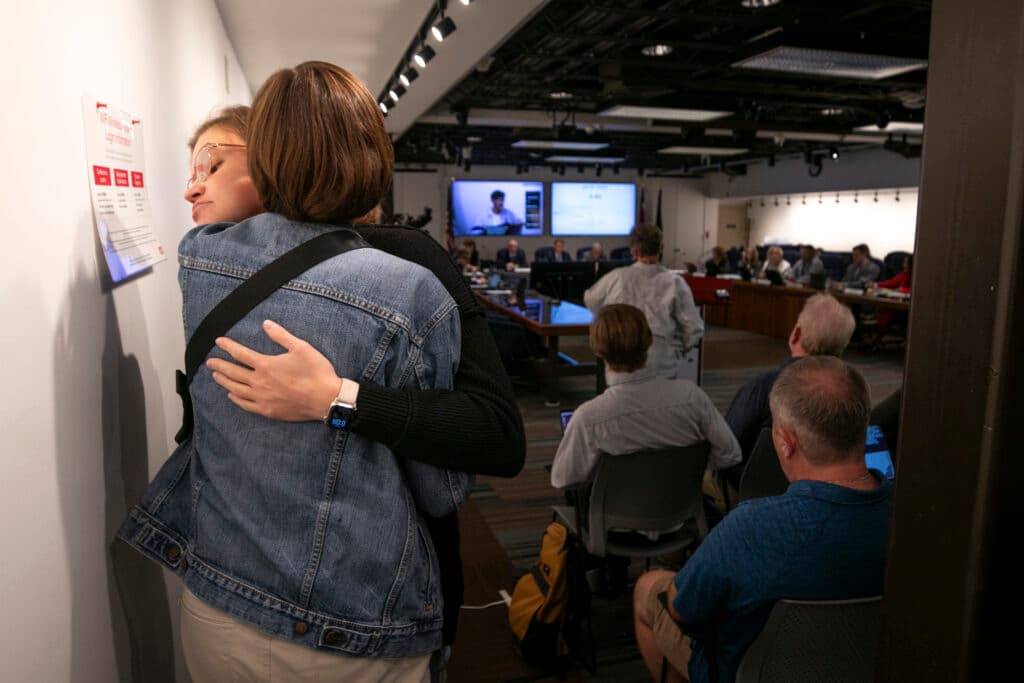
The service will continue, but RTD will now cover only $20 of each ride’s cost, down from a maximum of $25 currently. Riders also will pay a base fare of $4.50 per ride, or $2.25 for those who qualify for RTD’s income-based discount program.
The final approved proposal also included a limit of 60 rides per month and reduced the service’s availability by a couple hours per day.
RTD also will continue offering its van-based paratransit service, Access-a-Ride, which requires advance booking and, according to users, can take much longer to reach destinations.
RTD and its riders have wrestled with this issue for well over a year. According to RTD documents, Access-on-Demand usage has grown more than 10-fold since its launch about five years ago, pushing up spending on the program. The agency is worried about the long-term impacts of the growing costs as the agency grapples with budgetary challenges.
There was an intense debate.
On Tuesday, AoD users packed the board room to explain how the program had changed their lives, opening up employment opportunities and making it easier to live independently. And many said a base fare hike could upend that.
“We showed you our hearts, we shared our stories… You've heard our passion,” Maryann Migliorelli, president of the Boulder Valley Chapter of the National Federation of the Blind, told directors. “We know what the story is about, all of us needing good transit and Access-on-Demand is delivering it.”
A letter signed by other elected officials asked the directors to “wholly reject” the proposed changes. State Sen. Faith Winter, a Democrat from Broomfield and a signatory, spoke during the meeting and said it would be a “rash decision” to approve the changes as they were.
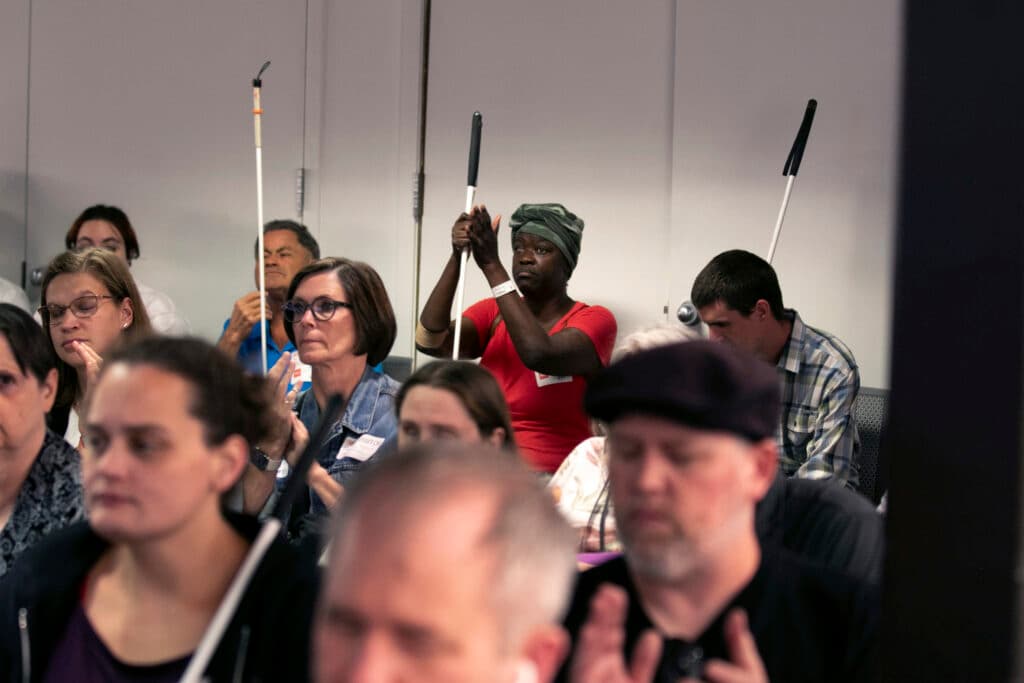
“I don't believe that adequate input was received from those, the most impacted from the public,” Winter told Denverite ahead of Tuesday’s meeting. “Last year the legislature created the RTD accountability committee that is currently meeting, and meeting about disability concerns. It seems premature to be making this decision.”
The letter amplified a common criticism of the changes to AoD, pointing to a ballot measure voters approved last year. Measure 7A allowed RTD to keep tax revenue that it otherwise would have had to refunded to taxpayers under Colorado’s Taxpayer Bill of Rights. Ballot language said one of the items that excess tax revenue would go toward was maintaining services for people with disabilities.
The board scaled back the changes.
RTD has scaled back some of the changes. The original version would have introduced base fares of $6.50. The directors ultimately settled on a $4.50 fare. The final version also allows riders to make multi-stop trips, something advocates had been asking for.
The amendment for the $4.50 fare was brought forward by director Lynn Guissinger, who represents District O.
“I think it's important to say that no one on this board or in the staff is making this decision cavalierly or heartlessly. I believe this is too big a jump right now for our customers with disabilities until we have really studied Access-A-Ride and our paratransit options as a whole,” she said.
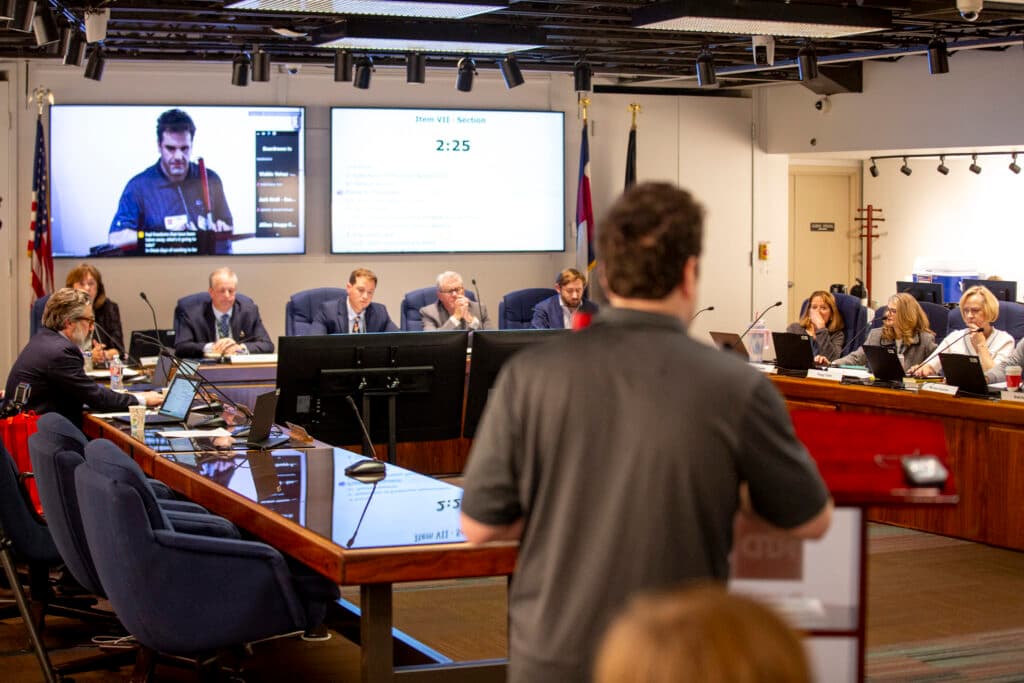
“I think this is us trying to balance out a very, very difficult decision,” Bouquet later added, explaining why he would be voting yes on the amendment.
Director Chris Nicholson proposed an amendment as well that would reduce the low-income fare.
“We should not be balancing our books on the backs of the very poor. The LiVE fare should be zero,” he said. The amendment failed.
The following directors voted for the change:
- Karen Benker
- Peggy Catlin
- Kathleen Chandler
- Lynn Guissinger
- Chris Gutschenritter
- Ian Harwick
- Matt Larsen
- Brett Paglieri
- Troy L. Whitmore
- Julien Bouquet
The “no” votes were Michael Guzman, Vince Buzek, JoyAnn Ruscha, Chris Nicholson and Patrick O’Keefe. Nicholson said he voted against the change because his amendment failed.
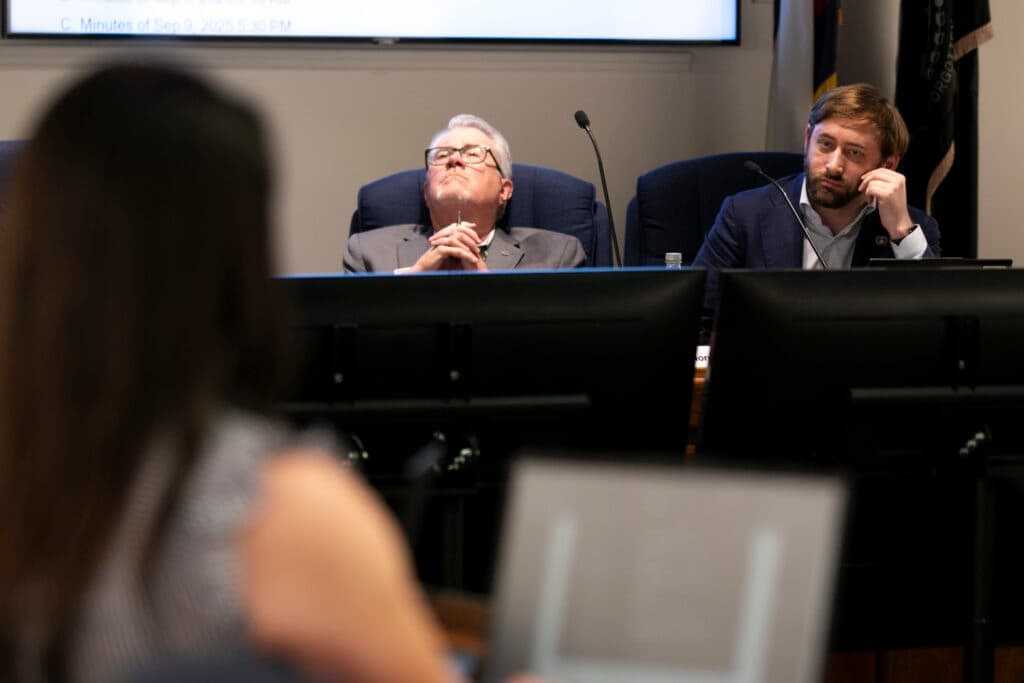
“My first priority is fiscal responsibility for the entire system. My second priority is taking care of the very poor. The board disagreed with me on both, so I voted no,” Nicholson wrote in a text.
“I'm gonna be a no vote on this,” Guzman said. “I'm gonna stand with community who have spoken clearly.”
Other agencies have similar issues.
RTD commissioned a peer review of its paratransit services early last year, which recommended changes to the popular on-demand service, like increasing fares.
But transit and disability advocates have been calling on the agency to do a more comprehensive study, including a deeper look at its legacy Access-A-Ride, to understand how well all the services are meeting the needs of the region’s disability communities.
That call was repeated Tuesday night by several who gave public comment, and a number of board directors expressed support for a “holistic review” of RTD’s paratransit system.
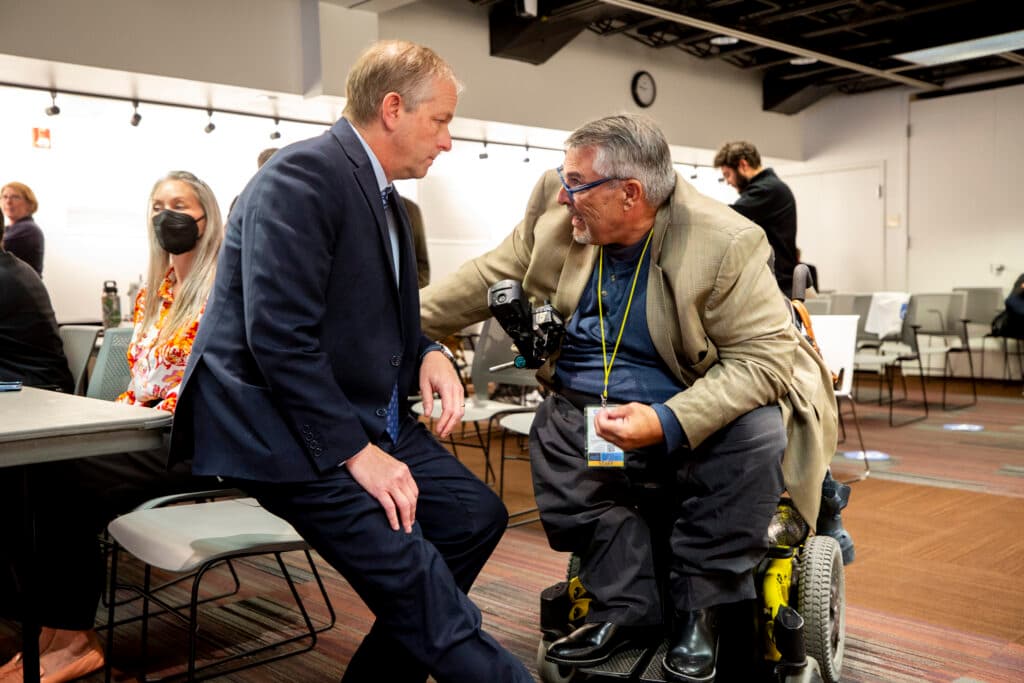
Several in the crowd audibly expressed their disappointment at the passage of the changes and any increase to the base fare. Directors who voted against passing the proposal seemed to share in their dismay.
"Disability rights are human rights, and this cruel decision was both an act of moral malfeasance and a dereliction of duty,” Ruscha said.
Molly Kirkham, who used AoD to get to the Board meeting and is a legislative policy advocate for The Arc of Colorado, said she was glad directors lowered the new base fare.
“I think we all wish that it was zero still, but I do understand there's compromise. It’s a give and take,” she told Denverite. “But I think with a study and more information that can create more communication, which hopefully can move things forward.”
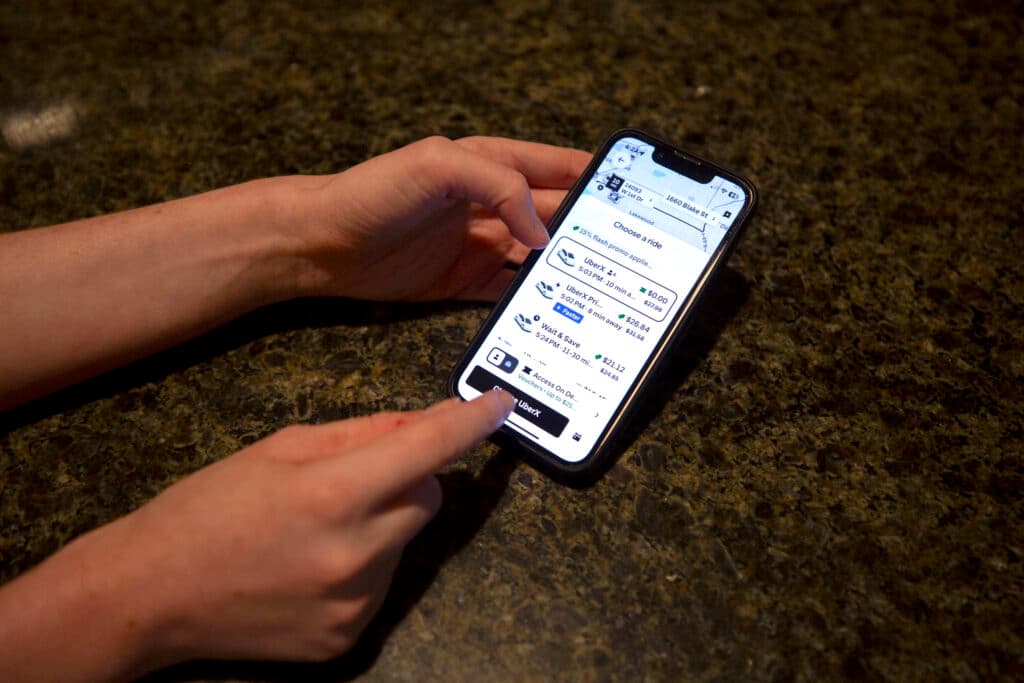
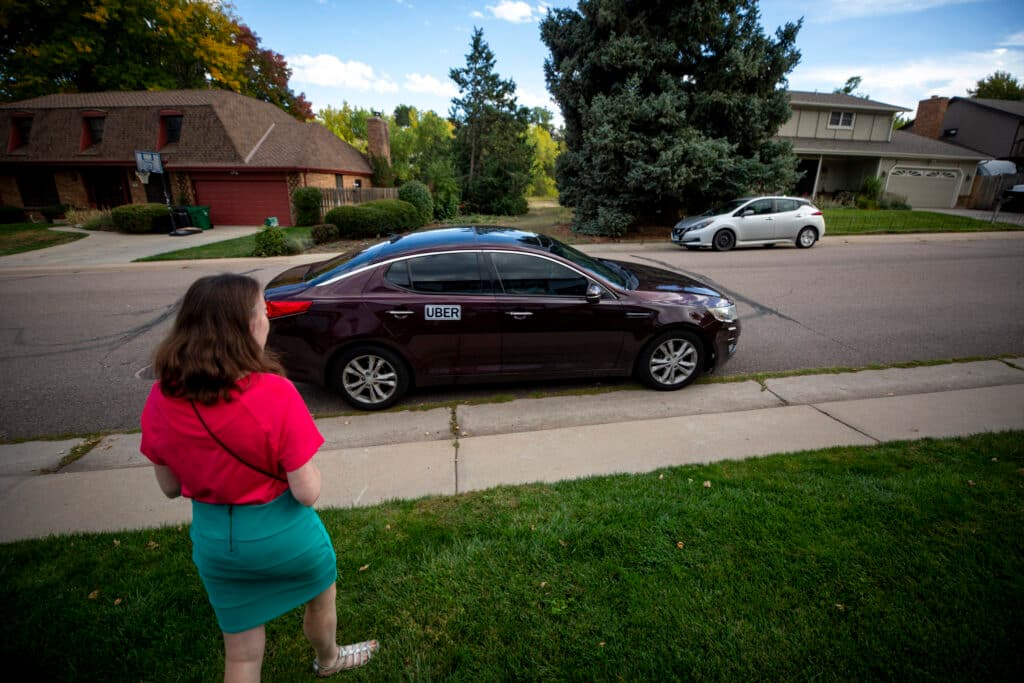
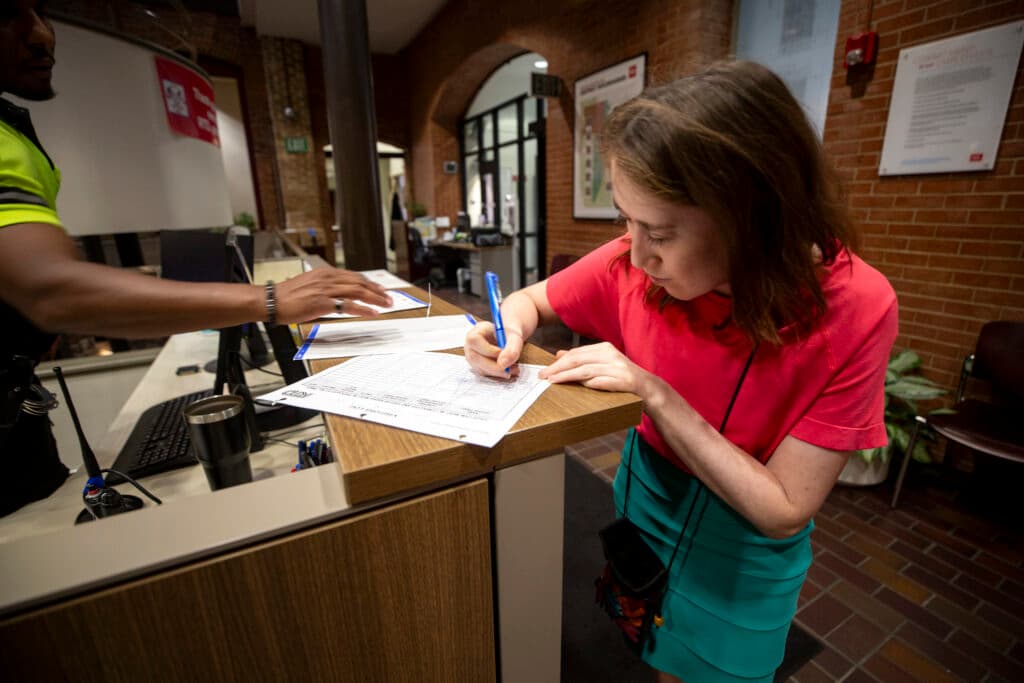
AoD user Tim Keenan similarly said the board’s concessions — the $4.50 base fare and a decision not to limit service to certain boundaries — is a “considerable improvement.” But he was also frustrated that a thorough study of paratransit had not been done “a long time ago.”
Similar on-demand offerings for riders with disabilities exist around the country. Jimin Choi, a postdoctoral associate at the University of Buffalo’s Center for Inclusive Design and Environmental Access, co-authored a study of on-demand paratransit options.
Choi said many of the programs she and her colleague looked at struggled with accessibility issues. Some riders may not be able to use digital apps, or the apps might not be accessible to people with visual impairments, and the programs also may struggle to provide vehicles that are wheelchair accessible.. And similar to RTD, other agencies saw increased demand because people really liked the services, leading to increased spending.
“So they're trying to find a balance in sustaining this program at the same time giving more alternative options for their customers,” Choi said.
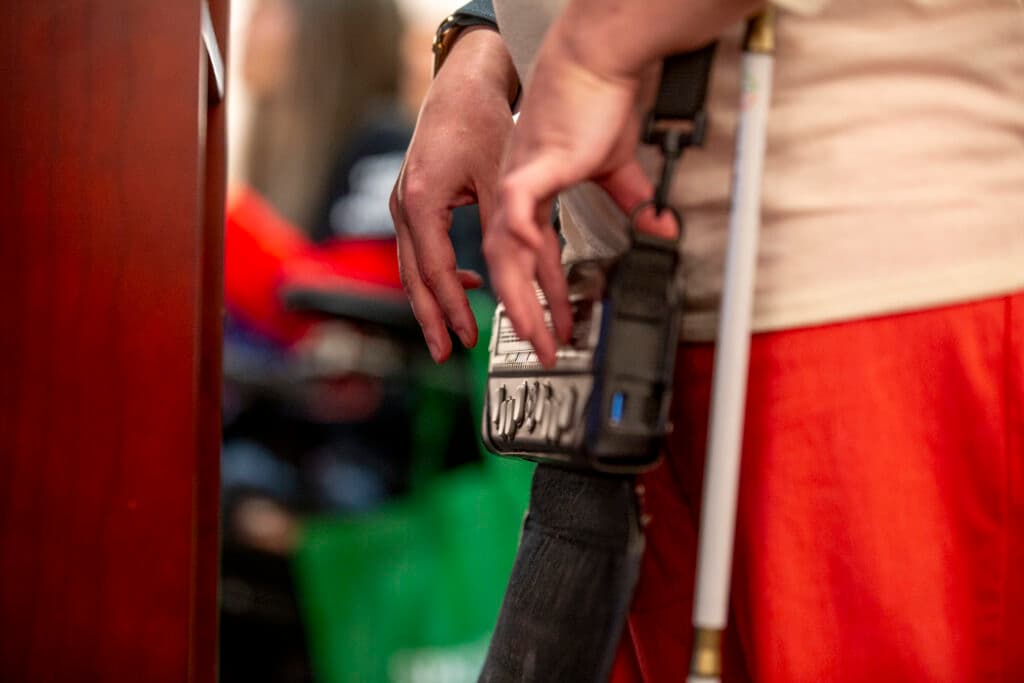
Chelsea Cook speaks from her notes, on a braille reader, as she asks RTD's board not to charge for its currently free Access-On-Demand service. Sept. 30, 2025. Kevin J. Beaty/Denverite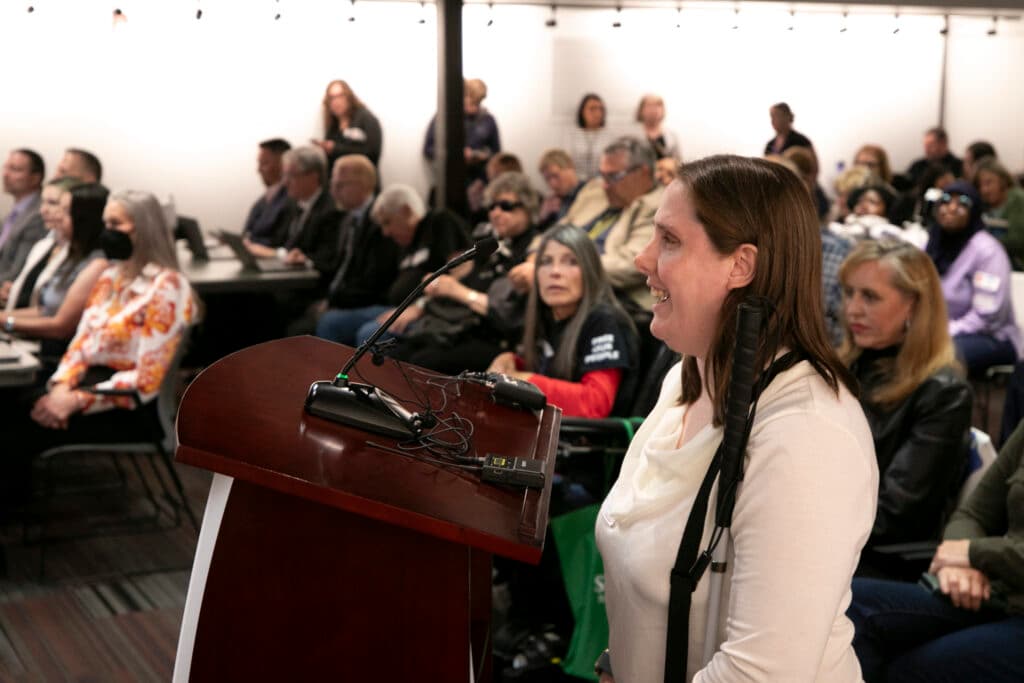
“We're not all going away, but we're stressed and tired, tired of fighting for things throughout our entire lives that everyone else takes for granted," Cook said at the mic. "[Keep] your goodwill intact by making fair changes to this program that don't involve people losing their jobs.” Kevin J. Beaty/Denverite
That was the case with Massachusetts Bay Transportation Authority’s The RIDE Flex, which began almost a decade ago. According to its website, the service currently has a $3 base fare and a subsidy up to $40 per ride.
David Hatch, MBTA’s deputy director of paratransit optimization, said the agency has had to do assessments along the way, including talking with rider advocacy groups, to make sure the program stayed financially sustainable for riders and MBTA. But he sees the goal of transit agencies, and in particular paratransit, as serving people“where they need to be served.”
“The ADA was written before Uber and Lyft existed, so how do we reinterpret or reconsider some of the rules and regulations and exceptions to those rules and regulations that have existed for longer?” he said.

